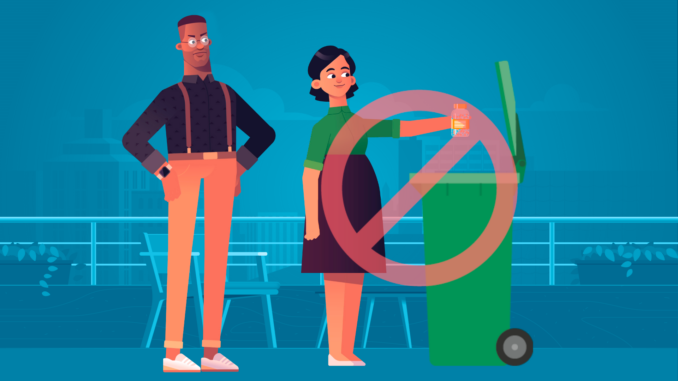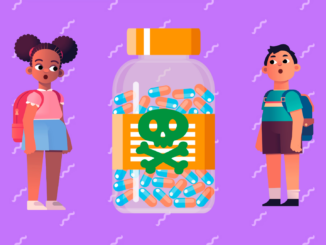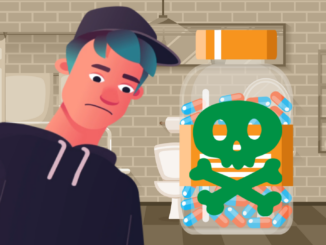
Pharmacies hosting take-back bins make responsible disposal easy
by Anne Stokes
Sometimes it’s just a few pills. Sometimes it’s a gallon-bag full of blood pressure medication, antibiotics, or painkillers. Either way, it’s important to get rid of unwanted pharmaceuticals safely and responsibly. When you can’t hoard them in the medicine cabinet, throw them in the trash or flush them down the drain, how do you get rid of them? Safe disposal drug take-back bins provide a responsible disposal option that’s a safe and easily accessible way to keep medications away from abuse and out of the environment.
“We have conveniently located pharmaceutical waste bins at our SHCWS [Student Health, Counseling, & Wellness Services center] located in The Well at Sacramento State,” says Dr. Blythe Mao, PharmD, MPH, pharmacist in charge at Sacramento State University’s Student Health Services Pharmacy. “These bins are designed to securely contain and safely dispose of medications, ensuring they do not pose a threat to our environment or community.”
Through a grant from the California Product Stewardship Council, Sacramento State University’s Student Health Services pharmacy installed a pharmaceutical take-back bin in 2013, the first in Sacramento County. The grant predates California’s SB 212, a statewide pharmaceutical and medical sharps take-back system signed into law in 2018.
“I am happy to see more disposal bins in the community since the first one was installed. Now we just need to continue getting the word out about bin locations and how vital proper disposal is to the environment and human health and safety,” says Mao. “We are happy to do our part in the in the process of preventing medications from contaminating the water supply and polluting the earth.”
While flushing medications down the drain or throwing them away into a landfill may seem like responsible disposal, the cumulative effect of so many pharmaceutical compounds from so many households can have disastrous effects on plant, fish, and wildlife. It can also find its way into municipal drinking water supplies.
“We value our environment at Sac State; disposing of medications in the trash or flushing them down the toilet can lead to contamination of our water supply and soil,” says Mao. “Pharmaceuticals can harm aquatic life and disrupt ecosystems, even at low concentrations.”
Ultimately, the most urgent reason many pharmacies host take-back bins is to prevent medications from being abused, intentionally or unintentionally. According to the Centers for Disease Control and Prevention, median monthly overdose deaths for teens and adolescents between the ages of 10 and 19 increased 109% between 2019 and 2021.
“Removing unnecessary opioids from circulation could save someone from unintentional overdose,” says Mao. “It is so encouraging when community members take the time to find out where we are and how to access our bin in order to get rid of their unwanted medications.”
Sacramento State University’s SHCWS center, including the pharmacy, is located on campus at 6000 J Street in Sacramento. Bins are accessible Monday through Friday, between 8 am and 5 pm.
To find a bin near you, go to medtakebackcalifornia.org.
Read more stories about med bins in California’s Central Valley.
Brought to you by the California Drug Take-Back Program and the California Product Stewardship Council.
Recent facebook posts from California Product Stewardship Council

The California Product Stewardship Council (CPSC) is a powerful network of local governments, non-government organizations, businesses, and individuals supporting policies and projects where producers share in the responsibility for managing problem products at their end of life.
CPSC is California’s thought leader and expert on Product Stewardship and the Extended Producer Responsibility (EPR) movement.
EPR enjoys the support of more than 26 million Californians. That’s nearly 70% of the state's population! Nearly 150 resolutions have been passed by California local jurisdictions and organizations supporting a more sustainable and toxic free environment through product stewardship. CPSC works closely with companies who have redesigned products for reuse as well as those who have established pilot or permanent collection programs with some sharing of costs with others in the product chain.
California Product Stewardship Council



